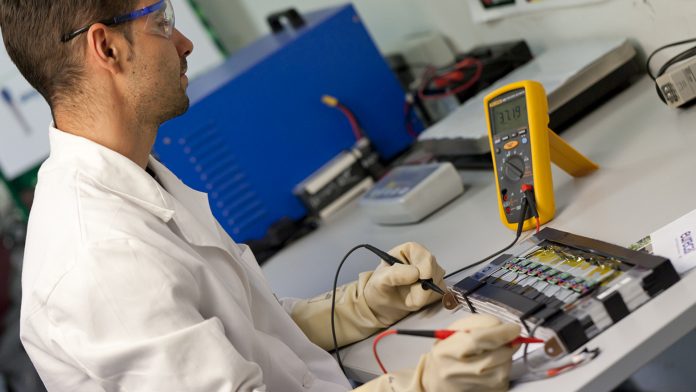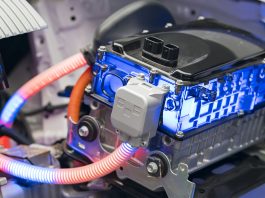With the aim to accelerate the mass market adoption of electric vehicles, the MARBEL project is developing novel, sustainable, and efficient EV battery technology.
The MARBEL European consortium is developing modular and reusable electric vehicle (EV) battery technology, which has a longer lifespan of up to 300,000km and a greater energy efficiency in charging and energy use. The research is part of the European MARBEL project, contributing to the implementation of environmentally friendly and lightweight mobility technology. MARBEL aims to reduce the environmental impact of batteries by 20% throughout their life cycle, ensuring they are easy to dismantle, refurbish, and repurpose for second-life applications.
Cutting greenhouse gas emissions from the transport sector
The transport sector represents almost a quarter of Europe’s greenhouse gas emissions and is the main cause of air pollution in cities, according to data from the European Environmental Agency. To counteract this data and pollution prospects, the European Union elaborated a plan to cut 40% of greenhouse gas emissions by 2030 from 1990 levels, and advance towards climate neutrality by 2050.
With road transport being by far the biggest emitter, a key component in the endeavour to reduce carbon dioxide (CO2) emissions from transport is to invest in the development of ultra-high-performance batteries with capabilities beyond the ones currently available on the market.
To achieve this challenge, there must be an outstanding battery lifetime and reliability, a decrease in weight, and an increase in the energetic density of battery packs is needed to improve their range. Other hurdles also include the need for shorter charging times through high-power charging, enabling longer distances, solving safety issues in operation, and increasing the lifespan of batteries. Furthermore, new batteries must support scalability that allows for cost-effective large-scale production.
However, apart from being able to improve battery efficiency, guaranteeing the sustainability of this EV battery technology along its entire life cycle is of the utmost importance. This includes the production of batteries with the lowest environmental impact possible; for example, by using materials obtained in full respect of human rights, and social and ecological standards. This will ensure that the battery can be later reused, remanufactured, or recycled in other batteries or for other applications.
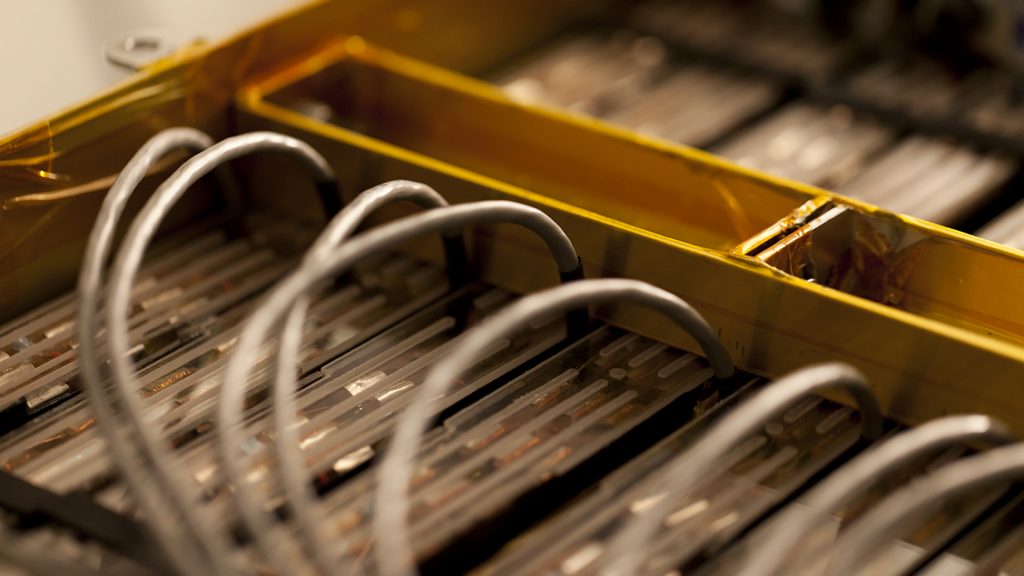
In MARBEL’s first stage, a dismantling and modularity protocol will be created covering aspects such as safety, modularity, second use, recyclability, and eco-design
The MARBEL project
The MARBEL project, funded by the European Commission Horizon 2020 programme, is designing and developing innovative and competitive, lightweight EV battery technology with a longer useful life, greater energy density, an increased efficiency, and a shorter recharging time to accelerate the adoption of EVs in the mass market.
Coordinated by the Eurecat Technology Centre, participating in this project are 16 partners from eight countries with different capacities and knowledge, ranging from automotive, battery development, and energy management, to lightweight materials, eco-design, and circular economy. These partners include: six research centres (Eurecat, Catalonia Institute for Energy Research (IREC), SINTEF, the Institute of Communication and Computer Systems (ICCS), THI – CARISSMA and Fraunhofer IWU); one automotive engineering company (Applus Idiada); two SMEs (Powertech Systems and OTC Engineering); one OEM (Centro Ricerche Fiat – CRF); four component manufacturers (FICOSA, ASAS, Agrati, and Tes-AMM); and two engineering service providers (AVL Thermal and HVAC and AVL Italia).
MARBEL focuses on creating a compact, modular, weight-optimised, high-performance battery pack with a longer lifespan, greater energy efficiency in charging and energy use, based on a robust and flexible management system, as well as ultra-fast charging and battery cooling systems.
In the words of Eduard Piqueras, European Programme Manager at Eurecat and MARBEL Project Coordinator: “We expect the project to have a major impact on the extension and penetration of the electrical vehicles in the market by providing innovative and affordable solutions in batteries and vehicles lightweighting.”
The project is also expected to foster the acceptance and use of this type of vehicle by solving two of the main critical points in consumer decision-making, limited vehicle autonomy and charging time, enabling longer travel distances.
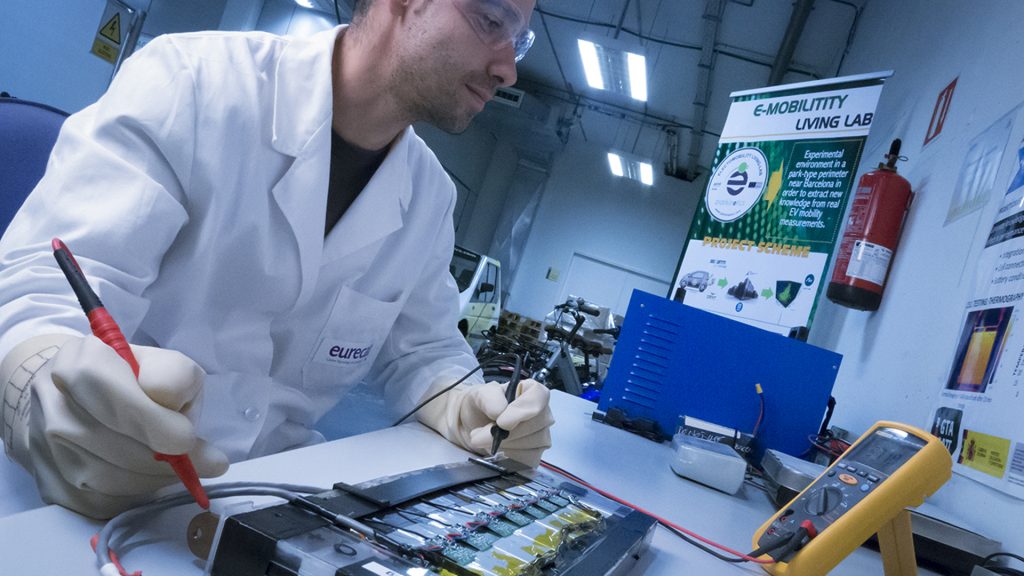
Batteries for shorter charging time and longer journeys
MARBEL will develop and demonstrate a complete battery pack, subcomponents, an ultra-fast charging solution, and a thermal system to cool battery cells more efficiently, which will be included in a battery management system with a smart cell manager and integrated wireless communications.
“The MARBEL battery management system is not tailored to any specific battery and, thus, will make possible its adaptation to a large variety of cells, modules and batteries with different sizes, voltages, and capacity,” said Alberto Gómez, Battery Technology Transfer Manager at Eurecat and MARBEL Technical Coordinator. “This set of battery components is expected to respond to two demanding goals: the development of batteries with a lifespan of 300,000km, almost doubling the lifespan of current batteries in the market, and the possibility to reduce the charging time by 25%.”
The battery solution will be modular, with modules being easy to pack together and disassemble, easing the manufacturing and dismantling of different battery configurations sharing the same production process and common elements. MARBEL will develop and qualify future and innovative performances and safety-related test procedures of developed functionalities, such as the use of miniaturised housings, a flexible test-bench simulating integration of EV conditions, and Artificial Intelligence as a tool to reduce the time of laboratory experiments.
“These technologies will optimise the repair, maintenance, and recycling processes, maintaining the value of the new batteries, reducing the risks for the operators, the cost, and the environmental impact,” adds Gómez.
The first year of the project, which started in January 2021, has dealt with the requirements of the MARBEL battery, considering aspects such as functionality, safety, modularity, dismantling, second-life applications based on the circular economy, recycling, and eco-design guidelines and approaches, amongst others. After the first six months of analysing the requirements, a second phase began which involved thermal management, module design, ultra-fast charging strategy conception, and the development of a Battery Management System (BMS).
The second phase of the project centres on the thermal and electric characterisation, and modelling of battery cells. Additionally, there will be a focus on the advanced estimation algorithms for BMS applications, the functional safety analysis, the weldless electrical cell-to-cell and module-to-module connections, the communications and sensors integration, and BMS architecture definition. Moreover, materials involving recycled aluminium alloys are being investigated to ensure the crucial mechanical integrity of the battery housing, also under design.
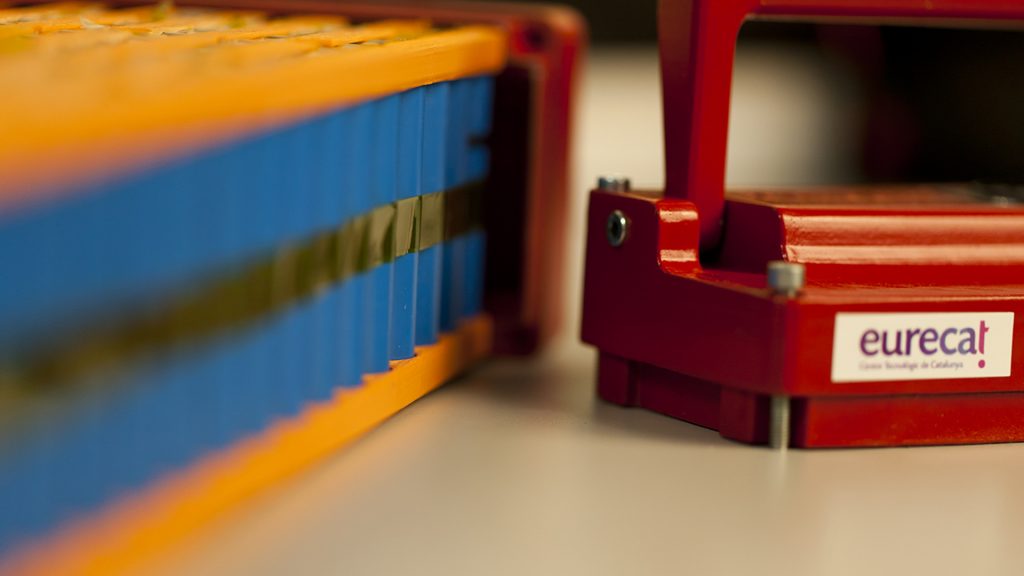
A circular economy approach to EV battery technology
MARBEL is planned to be a critical chain link for the fruitful implementation of the circular economy principles in made-by-design battery packs and supporting the automotive sector for a widespread penetration of EVs and plug-in hybrids. In that sense, the project takes a global approach to the battery box, focussing mainly on battery performance, from its manufacture to the end of its useful life. This includes the development of lightweight materials for battery housing systems in the vehicle.
Sustainability and circular economy principles are put at the centre of all project activities and goals. In this sense, “MARBEL’s solution uses secondary raw materials and works on developing a more material and energy resource-efficient battery system, ensuring it is easy to dismantle, refurbish, and repurpose for second-life applications”, explains Frederic Clarens, Director of the Waste, Energy, and Environmental Impact Unit at Eurecat.
In that regard, materials and processes and their environmental impact have been identified, and the consequent general eco-design strategies were aligned to decrease these environmental carriers. Taking into account all the possible options, a conceptualised battery design based on both technical and environmental dimensions with specific actions was deployed, putting special emphasis on second life and recycling options.
One of the materials selected are aluminium alloys with around 50% recycled aluminium. This material will be used for the battery housing profiles and will contribute significantly to battery housing weight reduction. These new profiles will be tested considering the extrudability properties and characterised regarding the mechanical and microstructural properties.
On the other hand, MARBEL is developing a process for sustainable dismantling, reuse, and second-life applications of battery-pack components and materials, based on a testing and classification standard development for used batteries. This would make sure that EV batteries’ components are not lost after their useful service life, and that those valuable materials used in batteries such as cobalt, lithium, or nickel are extracted and reused in other strategic industrial segments beside batteries, such as advanced materials, ceramics, induction materials, catalysts, pigments, electronics, and surface treatments.
Contributing to EU transport challenges in lightweight mobility
EV manufacturing in Europe is expected to grow from one million vehicles in circulation in 2019 to more than five million in 2025, with rapid and sustained growth until 2030. The future of the EV sector fundamentally depends on its technological capacity to develop more cost-efficient and long-lasting batteries based on a sustainability approach to ensure the deployment of EVs in the mass market. The MARBEL project aims to boost the circular economy of the battery value chain and promote a more efficient use of resources to minimise the environmental impact of batteries.
In that sense, the MARBEL project brings state-of-the-art research to tackle complex transport industry challenges, working towards transport decarbonisation and the energy transition. The MARBEL project, aiming at introducing an optimised battery solution to the market which will reduce the batteries’ environmental impact by 20%, will contribute to solving EU transport industry and societal challenges for the benefit of its citizens, industry, and environment.

This project has received funding from the
European Union’s Horizon 2020 research and
innovation programme under grant agreement
No. 963540.
Eurecat Technology Centre
www.eurecat.org/en
www.marbel-project.eu
https://www.linkedin.com/company/eurecat/
https://www.facebook.com/Eurecatorg/
Eurecat (@Eurecat_news) / Twitter
Please note, this article will also appear in the tenth edition of our quarterly publication.

